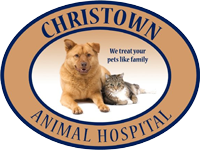Prevent Parvovirus with These Tips from a Veterinarian in Phoenix, AZ
December 18, 2017 6:27 pm Leave your thoughtsAs a loving pet parent, you make sure your pet gets food, fresh water, exercise, toys and a comfortable bed. You want the best for them, right? Responsible pet ownership means maintaining their health, including getting your dogs the recommended vaccinations to protect them against infections and disease. Parvovirus is one such infectious disease.
What is parvovirus?
Canine parvovirus, also called parvo, is a contagious viral disease that attacks the lining of a dog’s digestive system. Parvo prevents the proper absorption of nutrients and liquids, making it a life-threatening illness for puppies, because their immune systems are not yet fully mature, as well as for older dogs with weakened immune systems.
People, animals and objects that have come in contact with dog feces infected with parvo can transmit the disease to dogs or puppies. If the dog is not vaccinated, he or she is at risk for contracting parvovirus.
Early detection of parvo is crucial for survival. Get your dog to the vet immediately if you recognize any of the following symptoms: diarrhea, bloody stool, fever, vomiting, lethargy, loss of appetite or rapid weight loss.
Five tips to keep your dog healthy
Here are some helpful tips from a veterinarian in Phoenix, AZ to prevent parvovirus in dogs and puppies:
- Get your dog vaccinated: Your puppy will receive their first round of vaccines when they’re 6 to 8 weeks old. Typically, a puppy gets boosters every 3 weeks until 16 weeks of age, and again at one year. As adults, vaccinated dogs need boosters once a year.
- Keep puppies away from other animals: Your veterinarian will likely recommend that you limit your new puppy’s exposure to unvaccinated dogs and animals until they’ve received at least two vaccines. If you want to have puppy play dates, make sure the other dog or puppy is fully vaccinated.
- Avoid possibly exposed areas: Since the parvovirus can be transmitted through objects, you’ll want to avoid taking your new puppy or unvaccinated dog to places where unvaccinated dogs may go. These include dog parks, pet stores and puppy play groups. You should also carry and hold your pup when visiting the vet.
- Change your clothes: If you work with dogs or have contact with dogs other than your own during the day, your clothes and shoes can pick up and transmit parvovirus to your puppy. Carry a change of clothing, socks and shoes and change into them before going back home. Leave shoes outside and wash your day clothing right away.
- Wait before adopting a new dog: Animal shelters encourage meet-and-greets between your dog and a potential new dog. But they strongly suggest you leave unvaccinated dogs or puppies that have yet to complete their series of vaccinations at home. Otherwise, they could contract parvo at the shelter, or bring the virus into the facility.
Your veterinarian in Phoenix, AZ wants to remind all pet owners that they live in a parvovirus-prone area. The two parvovirus seasons in Arizona are fall and spring, so make sure you’re getting your puppies and kittens vaccinated accordingly. Call the team at Christown Animal Hospital to schedule your pet’s vaccination today!
Categorised in: Veterinarian
This post was written by Writer

